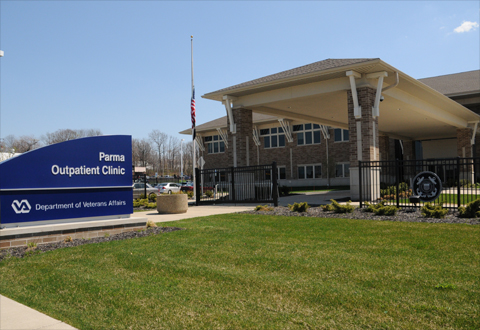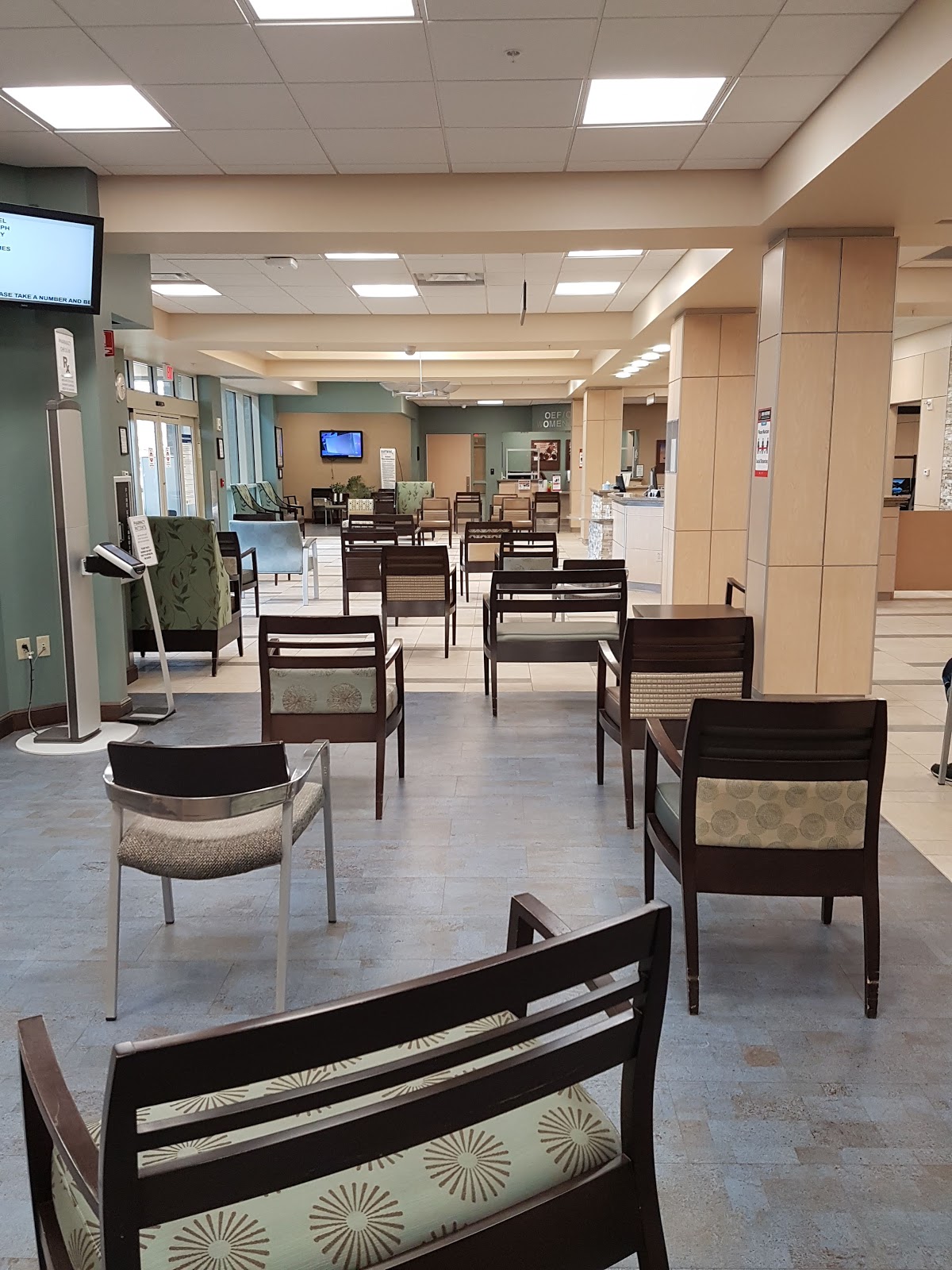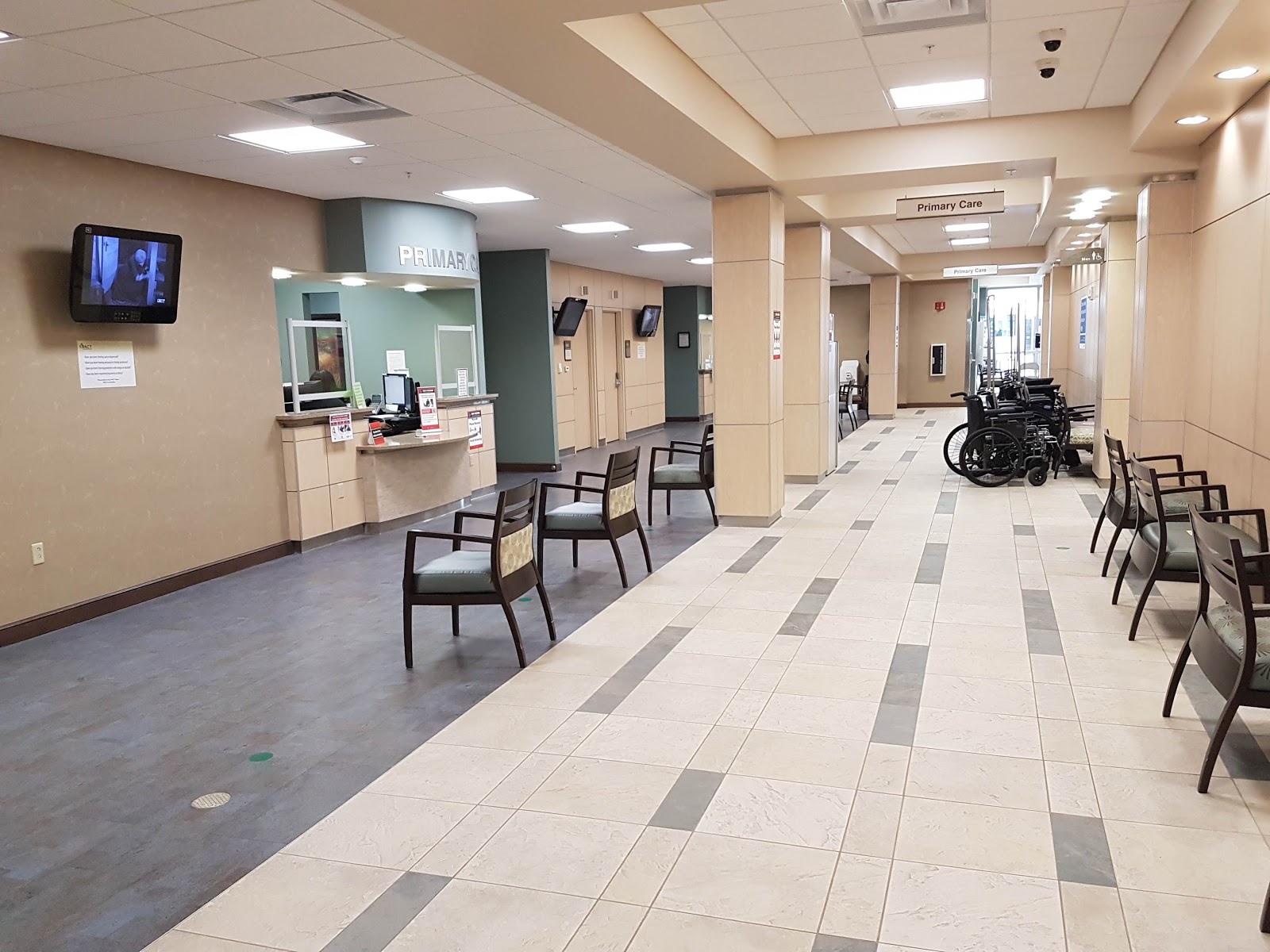Overview
The VA Northeast Ohio Healthcare System operates an outpatient clinic located in Parma, Ohio, dedicated to serving veterans and their families. This facility provides a wide range of healthcare services tailored to the unique needs of veterans, ensuring comprehensive care and support.
VA Northeast Ohio Healthcare System - Parma VA Outpatient Clinic at a Glance
Payment Options
- Medicaid
- Private health insurance
- U.S. Department of VA funds
- Medicare
- Federal military insurance (e.g., TRICARE)
Assessments
- Comprehensive mental health assessment
- Comprehensive substance use assessment
Age Groups
- Adults
- Young adults
Operation
- State government
Accreditations
The Joint Commission:

The Joint Commission accreditation for addiction and behavioral health is a prestigious recognition signifying a facility's commitment to delivering high-quality care and safety for individuals dealing with substance abuse and mental health issues. It involves rigorous evaluations and assessments, ensuring patients receive evidence-based treatment and exceptional care. This accreditation demonstrates a facility's dedication to continuous improvement and ethical practices, building trust among patients and healthcare professionals seeking top-tier addiction and behavioral health services.
Registration: 2416
Commission on Accreditation of Rehabilitation Facilities (CARF):

Established in 1966, the non-profit organization known as the Commission on Accreditation of Rehabilitation Facilities (CARF) has a dedicated focus on accrediting rehabilitation organizations. CARF's primary mission is to assist service providers, particularly rehabilitation facilities, in upholding and promoting the highest standards of care.
Treatment At VA Northeast Ohio Healthcare System - Parma VA Outpatient Clinic

Conditions Treated
Mental health treatment:
Mental health treatment provides a safe and structured environment where individuals can receive professional care and support for their mental health challenges. Within the facility, trained therapists, counselors, and medical staff work together to create personalized treatment plans tailored to each person's needs. Patients might participate in a variety of therapies, including individual counseling, group therapy, and possibly medication management. The goal is to equip individuals with the tools and strategies they need to cope with their conditions and lead fulfilling lives.
Alcoholism:
Alcohol addiction is a health problem where drinking takes control over a person's life. It affects how their brain thinks and acts, leading to strong desires to drink, bad feelings, sudden actions, and discomfort when not drinking. To help someone with this problem, there are treatments like detox, counseling, group support, and learning coping methods. While treatment can't completely cure the urge to drink, it helps people regain control of their lives and feel better overall.
Opioid Addiction:
Opioid rehabs specialize in supporting those recovering from opioid addiction. They treat those suffering from addiction to illegal opioids like heroin, as well as prescription drugs like oxycodone. These centers typically combine both physical as well as mental and emotional support to help stop addiction. Physical support often includes medical detox and subsequent medical support (including medication), and mental support includes in-depth therapy to address the underlying causes of addiction.
Substance use treatment:
Substance use rehabilitation is a comprehensive treatment approach designed to assist individuals struggling with addiction to drugs or alcohol. This form of rehabilitation addresses both the physical dependency, often starting with detoxification, and the psychological triggers, using various therapeutic methods. The objective is to empower individuals to achieve and maintain sobriety, while equipping them with the tools and coping strategies needed to reintegrate into society and lead a substance-free life.
Co-occurring Disorders:
Dual-diagnosis rehabs are usually the appropriate solution to treat co-occurring mental health and substance abuse disorders. These facilities typically employ medical and behavioral experts who use a range of interventions, together with the right healing environment, for you to achieve and sustain long-term recovery. Treatment usually includes evidence-based therapies (like cognitive behavioral therapy), recovery support meetings, 12-step facilitation, psychoeducation, skills training, and group therapy.

Levels Of Care
Detoxification:
Drug and alcohol addiction often takes a heavy toll on one's body. Over time, a physical dependence can develop, meaning the body physiologically needs the substance to function. Detox is the process of removing drugs and/or alcohol from the body, a process that can be lethal if mismanaged. Medical detox is done by licensed medical professionals who monitor vital signs and keep you safe, healthy, and as comfortable as possible as you go through detox and withdrawal. The length of stay at the detoxification program is determined according to the specific needs of the patient.
Aftercare:
Finishing a drug or alcohol rehab program is just the beginning of the recovery journey. Aftercare focuses on establishing a long-term recovery plan, which encompasses continuous support. This might involve options such as residing in sober living homes or halfway houses, receiving career guidance, and connecting the individual with community support groups like Alcoholics Anonymous (AA) or Narcotics Anonymous (NA).
Outpatient:
Outpatient treatment in a rehab center offers flexible therapy sessions, typically ranging from 1-3 hours per week, allowing individuals to continue daily activities while receiving care. In contrast, intensive outpatient programs demand a more rigorous commitment, often involving 9-15 hours weekly, providing a more immersive therapeutic environment without the need for inpatient stays.

Treatment Modalities
Family counseling:
Family Counseling is a therapeutic approach that seeks to address and resolve conflicts, improve communication, and strengthen relationships within the family unit. By providing a safe space for family members to express their feelings and concerns, a trained counselor facilitates understanding and collaboration among members, promoting healthier dynamics and enhancing overall family well-being.
Individual psychotherapy:
Individual Psychotherapy is a personalized therapeutic approach aimed at aiding individuals in overcoming addiction and its underlying psychological triggers. A licensed therapist works closely with the individual through one-on-one sessions to unearth and address personal challenges, emotional issues, and behavioral patterns contributing to their substance abuse. Individual psychotherapy lays a robust foundation for a sustainable recovery and a better quality of life by fostering self-awareness, coping strategies, and healthier behavioral responses.
Cognitive Behavioral Therapy:
Cognitive Behavioral Therapy (CBT) is a form of psychotherapy that emphasizes the critical role of thinking in how we feel and what we do. It aims to identify and challenge distorted or negative thought patterns and behaviors, teaching individuals to replace them with more constructive and rational beliefs. CBT is evidence-based and has been shown to be effective in treating a variety of psychological disorders, including depression, anxiety, and phobias, among others.
Nicotine replacement:
Nicotine Replacement Therapy (NRT) is a medically-approved method to aid individuals in quitting smoking. It provides a controlled and lower dose of nicotine to alleviate withdrawal symptoms and cravings, facilitating a smoother transition towards a nicotine-free life. By bypassing the harmful substances found in cigarettes, NRT offers a safer alternative while individuals work on overcoming their addiction.
Group counseling:
Group Counseling is a therapeutic approach where individuals come together under the guidance of a trained counselor to share experiences, offer support, and gain insights. This collective format promotes mutual understanding and growth, allowing participants to learn from one another's perspectives and challenges.
Experiential Therapy:
Experiential Therapy is a therapeutic approach that emphasizes direct experience and active client involvement to gain insight into unresolved issues and trauma. Through guided activities, role-playing, and other interactive techniques, clients are encouraged to confront and explore their emotions in the present moment, leading to a deeper understanding and resolution of their challenges. This therapy is rooted in the belief that transformative change occurs through meaningful experiences.
Nutrition Therapy:
Nutrition Therapy offers a holistic approach to recovery by addressing the body's dietary needs. Tailored to each individual, this therapy ensures optimal nutrient intake to support healing, boost immunity, and promote overall well-being, complementing other rehabilitation efforts for a comprehensive recovery journey.
Marital/couples counseling:
Whether a marriage or other committed relationship, an intimate partnership is one of the most important aspects of a person's life. Drug and alcohol addiction affects both members of a couple in deep and meaningful ways, as does rehab and recovery. Couples therapy and other couples-focused treatment programs are significant parts of exploring triggers of addiction, as well as learning how to build healthy patterns to support ongoing sobriety.
Trauma-related counseling:
Trauma-related counseling is a specialized form of therapeutic intervention aimed at assisting individuals who have experienced distressing, life-altering events. This approach focuses on helping clients process their traumatic experiences, develop coping mechanisms, and rebuild a sense of safety and trust. Counselors trained in trauma therapy use evidence-based techniques to support healing and resilience, ensuring survivors can move forward and lead fulfilling lives despite their past adversities.
Eye Movement Desensitization and Reprocessing therapy:
EMDR is a therapy method initially designed to address trauma. During an EMDR session, patients engage in eye movements reminiscent of REM sleep, either by following a therapist's moving finger or tracking a light bar. These repetitive eye movements aim to aid the brain in reprocessing memories, potentially diminishing the severity of traumatic recollections. As a result, related memories may also heal, leading patients to feel notably more at ease, balanced, and emotionally composed.
Motivational Interviewing:
Motivational Interviewing (MI) is a client-centered counseling approach designed to enhance an individual's intrinsic motivation to change by exploring and resolving ambivalence. Through empathetic engagement and evoking personal reasons for change, MI helps individuals recognize the negative consequences of their substance use and empowers them to take steps toward recovery.
Eating Disorder Treatment:
Eating Disorder Treatment" is a specialized approach to help individuals with disorders like anorexia and bulimia. It combines medical, psychological, and nutritional interventions to address these conditions' physical and emotional aspects. The goal is to support recovery, promote self-acceptance, and improve overall well-being.
Life Skills:
Life Skills is a crucial component of rehabilitation that focuses on equipping individuals with the practical abilities necessary to maintain sobriety and lead fulfilling lives. These skills encompass a wide range of capabilities, including but not limited to time management, communication, problem-solving, stress management, and financial literacy. By acquiring and honing these essential life skills, individuals in addiction treatment gain the tools and confidence needed to navigate the challenges of daily life, reduce the risk of relapse, and ultimately achieve lasting recovery.
Holistic Treatment:
Holistic Treatment refers to an integrated approach to recovery that addresses the physical aspects of addiction and the individual's emotional, mental, and spiritual needs. This method incorporates a variety of therapies, practices, and activities, such as nutrition, mindfulness, yoga, and counseling, to promote overall well-being, self-awareness, and balance. By treating the whole person, holistic treatment aims to ensure a more comprehensive and sustainable recovery.
Religious Programs:
Religion used during treatment means a specific religion is used as the basis for care and treatment at a specific rehab facility or support group. Whether that faith is Christianity, Judaism, Islam, Buddhism, or another religion, it is the central guiding principle behind the care. Counselors, support materials (like books or workbooks), and peers use that faith to support patients in finding their way to recovery. Surrendering to a higher power can be a relief to many patients, and religion can help those in recovery realize they're worthy or love and forgiveness. Connecting with their religion can provide patients a strong foundation for addiction recovery, and inspire comfort, support, and guidance in a deep, meaningful way.
Ancillary Services
Languages
- Sign language services for the deaf and hard of hearing
Special Programs
- Pregnant/postpartum women
- Active duty military
- Persons with eating disorders
- Clients who have experienced trauma
- Persons with post-traumatic stress disorder (PTSD)
Contact Information
DISCLAIMER: The facility name, logo and brand are the property and registered trademarks of VA Northeast Ohio Healthcare System - Parma VA Outpatient Clinic, and are being used for identification and informational purposes only. Use of these names, logos and brands shall not imply endorsement. BetterAddictionCare.com is not affiliated with or sponsored by VA Northeast Ohio Healthcare System - Parma VA Outpatient Clinic.




